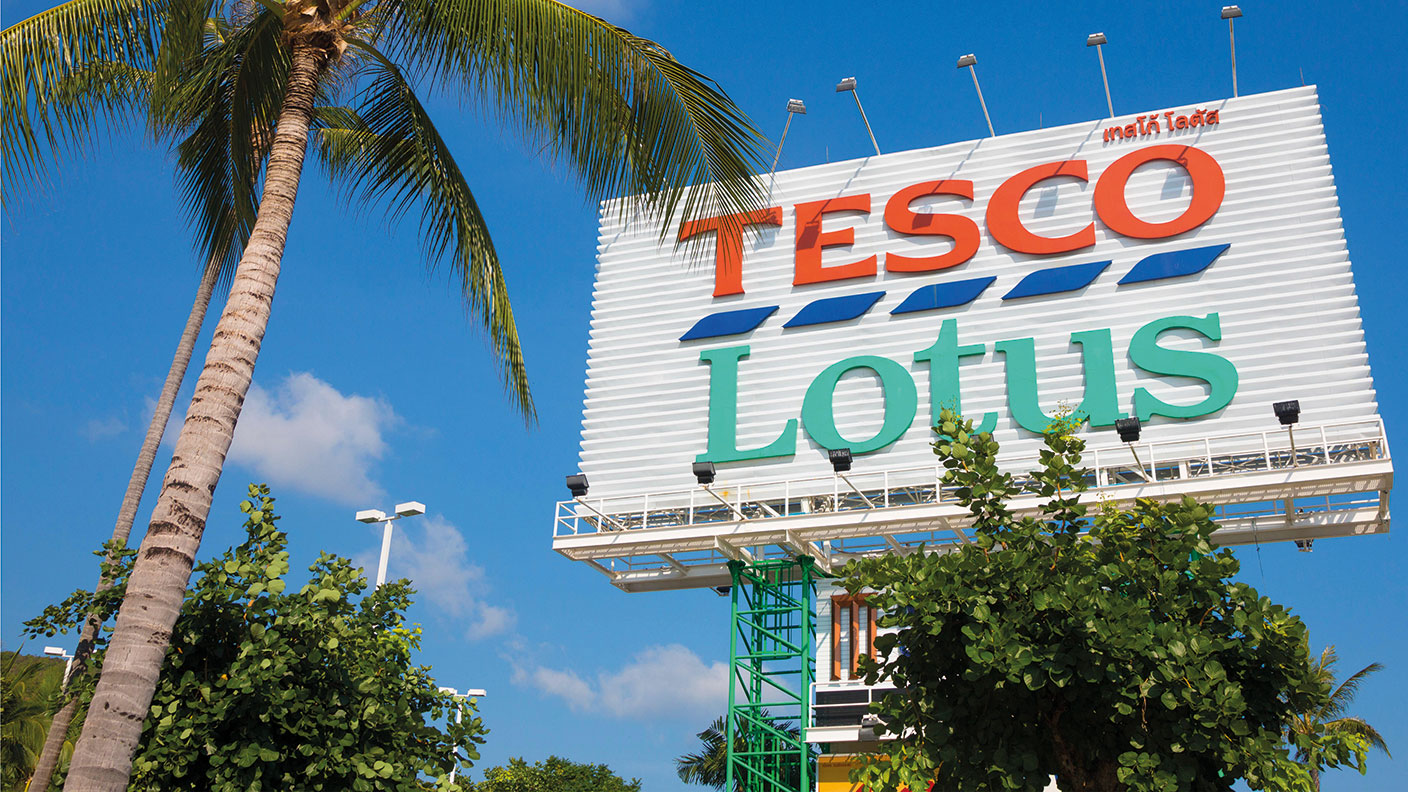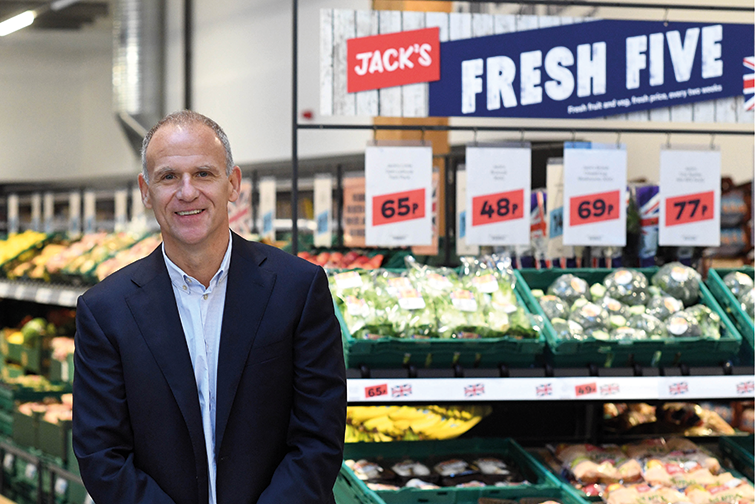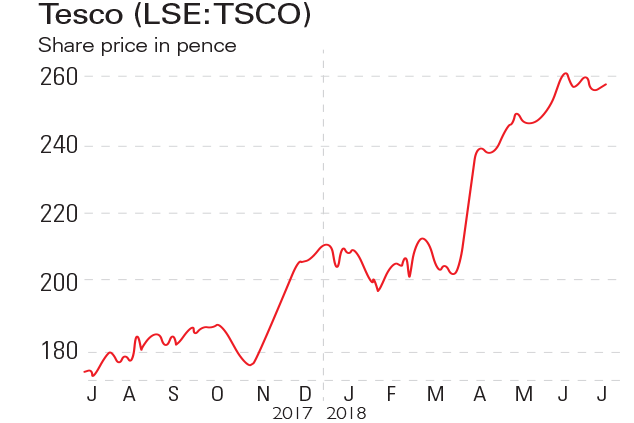Tesco’s chamber of horrors
Long-time rumours of Tesco squeezing its suppliers to bolster profits have more than a grain of truth to them.

Get the latest financial news, insights and expert analysis from our award-winning MoneyWeek team, to help you understand what really matters when it comes to your finances.
You are now subscribed
Your newsletter sign-up was successful
Want to add more newsletters?

Twice daily
MoneyWeek
Get the latest financial news, insights and expert analysis from our award-winning MoneyWeek team, to help you understand what really matters when it comes to your finances.

Four times a week
Look After My Bills
Sign up to our free money-saving newsletter, filled with the latest news and expert advice to help you find the best tips and deals for managing your bills. Start saving today!
Tesco has "begun to resemble a retail chamber of horrors", said the FT's Jonathan Guthrie. The supermarket giant announced a fourth profit warning this week, wiping another 6% off the share price, which is now down 50% since the start of the year.
Profits for the year to February 2015 will not exceed £1.4bn, a reduction of around 30% on the previous estimate and a far cry from the £3.3bn reported last year. This is partly because the group has decided to jettison accounting practices, many relating to deals with suppliers that "artificially" elevated earnings.
What the commentators said
Another tactic it used to resort to in order to inflate profits just before the end of the year was to cut staff hours after New Year and order fewer products to cut waste. Such "customer-unfriendly tactics" will now be ditched.
MoneyWeek
Subscribe to MoneyWeek today and get your first six magazine issues absolutely FREE

Sign up to Money Morning
Don't miss the latest investment and personal finances news, market analysis, plus money-saving tips with our free twice-daily newsletter
Don't miss the latest investment and personal finances news, market analysis, plus money-saving tips with our free twice-daily newsletter
But these structural changes, however laudable, imply a fall in profits, and it's not easy to gauge how bad it will be, said Robert Cole on breakingviews.com. It depends on the response of suppliers, customers and competitors. Equally murky are the possible knock-on effects.
For instance, if the group's operations become structurally less profitable, the value of the huge property portfolio will also fall. "The next slew of bad news could well centre on the already strained balance sheet."
Meanwhile, Tesco still needs a clear strategy to reverse the rapid loss of market share to Aldi and Lidl, added Thao Hua in The Wall Street Journal. "The road to recovery will be a tough slog."
Chief executive Dave Lewis does at least seem to have understood that Tesco lost sight of the importance of putting customers first, said Chris Blackhurst in the Evening Standard. If he could "rid himself of management gobbledygook" too, that would be a bonus.
When MoneyWeek's share tipster Phil Oakley looked at Tesco in September (well before the latest profit warning), he pointed out that the company's tangible net asset value is just 134p per share. So even at current levels, the stock isn't obviously cheap.
Given all the uncertainty ahead, said The Daily Telegraph's John Ficenec, "investors looking for a pre-Christmas bargain should steer well clear of Tesco shares".
Get the latest financial news, insights and expert analysis from our award-winning MoneyWeek team, to help you understand what really matters when it comes to your finances.

-
 Should you buy an active ETF?
Should you buy an active ETF?ETFs are often mischaracterised as passive products, but they can be a convenient way to add active management to your portfolio
-
 Power up your pension before 5 April – easy ways to save before the tax year end
Power up your pension before 5 April – easy ways to save before the tax year endWith the end of the tax year looming, pension savers currently have a window to review and maximise what’s going into their retirement funds – we look at how
-
 How to profit from rising food prices: which stocks should you invest in?
How to profit from rising food prices: which stocks should you invest in?Tips Food prices are rising – we look at the stocks to avoid and the one to invest in this sector.
-
 Tesco looks well-placed to ride out the cost of living crisis – investors take note
Tesco looks well-placed to ride out the cost of living crisis – investors take noteAnalysis Surging inflation is bad news for retailers. But supermarket giant Tesco looks better placed to cope than most, says Rupert Hargreaves.
-
 Tesco sells its retail subsidiary in Thailand and Malaysia for £8bn
Tesco sells its retail subsidiary in Thailand and Malaysia for £8bnNews Tesco has agreed to sell its southeast Asian operations to Thai conglomerate Charoen Pokphand for £8.2bn in cash.
-
 Tesco should keep its Asian assets
Tesco should keep its Asian assetsOpinion The £7bn that Tesco could get for its Tesco Lotus business in Asia looks enticing. But holding on to it would be smarter, says Matthew Lynn.
-
 Tesco wields the axe
Tesco wields the axeFeatures Britain’s biggest supermarket is cutting back on staff and fresh food. Will the move prove counterproductive? Matthew Partridge reports.
-
 If you'd invested in: Tesco and Associated British Foods
If you'd invested in: Tesco and Associated British FoodsFeatures Tesco has seen its market value rise almost 50% in a year, while AB Foods has seen shares slide despite a rise in profits.
-
 What's behind Tesco’s alliance with Carrefour?
What's behind Tesco’s alliance with Carrefour?Features Tesco is clubbing together with French rival Carrefour to bulk buy own-label goods in an effort to cut costs. Will it succeed? Ben Judge reports.
-
 Lessons from Tesco’s turnaround
Lessons from Tesco’s turnaroundOpinion Retailers have it tough, but Tesco has shown that it’s still possible to thrive, says Matthew Lynn.